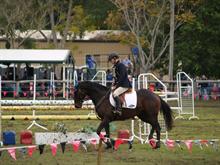Online Course -Animal Psychology
 Why Do animals behave as they do?
Why Do animals behave as they do?- Study animal behaviour -learn -use that knowledge to better manage animals
- With a a foundation in animal psychology, you will learn better from what you observe animals doing in the future
- Relevant for pets, farm animals and wildlife
Learn online - the psychology behind animal behaviour.
This provides an excellent foundation for working with animals in any situation: farms, zoos, veterinary practices, pet shops or even in the wild. The course is developed and tutored by academics and practitioners from a background in agriculture, veterinary science and wildlife management.
This provides an excellent foundation for working with animals in any situation: farms, zoos, veterinary practices, pet shops or even in the wild. The course is developed and tutored by academics and practitioners from a background in agriculture, veterinary science and wildlife management.
 Duration: 100 Hours
Duration: 100 Hours COURSE STRUCTURE
There are eight lessons in this course:
- Introduction: Influences and motivation.
- What is behaviour
- Causes of behaviour (e.g. genetics, learning, external and internal influences)
- Reactive, active and cognitive behaviour
- Conditioning
- Genetics and Behaviour.
- Understanding biology
- Natural selection
- Genetic variation
- Development of behaviour
- Behavioural genetics
- Animal Perception and Behaviour.
- How animals perceive things
- What stimulates them and how do those stimuli function
- Instinct
- Neural control
- Sensory processes, sight, sound, hearing etc.
- Behaviour and the Environment.
- Coordination
- Orientation
- Homeostasis
- Acclimatisation
 Circadian rhythms
Circadian rhythms - Biological clocks
- Reproductive cycles etc.
- Social Behaviour.
- Animal Societies
- Aggression
- Social constraints
- Social order
- Play
- Biological clocks
- Communication
- Instinct and Learning.
- Conditioning and learning
- Extinction and habituation
- Instrumental learning
- Reinforcement
- Operant behaviour
- Biological and cognitive aspects of learning
- Handling Animals.
- Psychological affects of different handling techniques
- Training animals (horses, cats, dogs, etc).
- The student has a choice of which types of animals to focus on, though a variety will still be covered.
- Behavioural Problems.
- Abnormal behaviour (e.g. Psychotic, neurotic);
- Domestication of animals
- Reducing human contact
- Reducing human dependence
Each lesson culminates in an assignment which is submitted to the school, marked by the school's tutors and returned to you with any relevant suggestions, comments, and if necessary, extra reading.
Aims
- Identify factors affecting animal behaviour.
- Describe the influence of genes on animal behaviour.
- Explain how animals perceive and how they respond to various stimuli.
- Explain the influence of environment factors, such as circadian rhythms, on biological clocks, reproductive cycles, orientation and other animal behaviour.
- Explain the social influences on animal aggression, play, sexual behaviour, communication and other behaviours.
- Describe different ways that animals learn (such as conditioning and habituation) and some effects of learning on behaviour.
- Discuss psychological implications of different handling techniques.
- Identify abnormal animal behaviour (e.g. psychotic, neurotic behaviour) and ways to reduce dependence on humans.
Why Choose This Course
- Course notes and materials are unique (written by our staff) and up to date (most revised annually) –our graduates are more up to date with what they learn than many other institutions.
- We don’t just present you with information; we also work to help you understand and remember it, develop an ability to apply it in the real world, and build networks with others who work in this field.
- Start any time, study at your own pace, study from anywhere
- Don’t waste time and money traveling to and from classes
- More choices in your assignment work –courses are written to allow you more options to focus on parts of the subject that are of more interest to you.
- Tutors more accessible than many colleges – academics are hard at work in both the UK and Australia, 5 days a week, 16 hours a day, and answering individual queries from students are top priority and always attended to within a day –often within an hour.
- Be treated like an individual –don’t get lost in a crowd of other students. Our tutors interact with you one to one.
- Extra help at no extra cost where needed.. If you find a task you can’t do, we will help you through it or give you another option.
- Support after graduation –We will advise on getting work, starting a business, putting a CV together. We will promote students and their businesses through our extensive profile on the internet. Any graduate who asks will be helped.
How You Study
- When you enroll, we send you an email that explains it all.
- You are given a short orientation video to watch, where our principal introduces you to how the course works, and how you can access all sorts of support services
- You are either given access to your course online, or sent a CD or course materials through the mail (or by courier).
- You work through lessons one by one. Each lesson has at least four parts:
- An aim -which tells you what you should be achieving in the lesson
- Reading -notes written and regularly revised by our academic staff
- Set Task(s) -These are practicals, research or other experiential learning tasks that strengthen and add to what you have been reading
- Assignment -By answering questions, submitting them to a tutor, then getting feedback from the tutor, you confirm that you are on the right track, but more than that, you are guided to consider what you have been studying in different ways, broadening your perspective and reinforcing what you are learning about
- Other - Your work in a course rarely stops at just the above four parts. Different courses and different students will need further learning experiences. Your set task or assignment may lead to other things, interacting with tutors or people in industry, reviewing additional reference materials or something else. We treat every student as an individual and supplement their learning needs as the occasion requires.
- You are given access to and encouraged to use a range of supplementary services including an online student room, including online library; student bookshop, newsletters, social media etc.
- You are provided with a "student manual" which you can refer to if and when needed. It provides a quick solution to most problems that might occur (some people never need to use this; but if you are studying late at night & have a problem, the manual provides a first port of call that can often get you moving again).
Recognition
- ACS is known and highly respected internationally: by employers and academics alike:
- Recognised by International Accreditation and Recognition Council
- ACS has been training people around the world since 1979
- Over 100,000 have now studied ACS courses, across more than 150 countries
- Formal affiliations with colleges in five countries
- A faculty of over 40 internationally renowned academics –books written by our staff used by universities and colleges around the world.
ليست هناك تعليقات:
إرسال تعليق